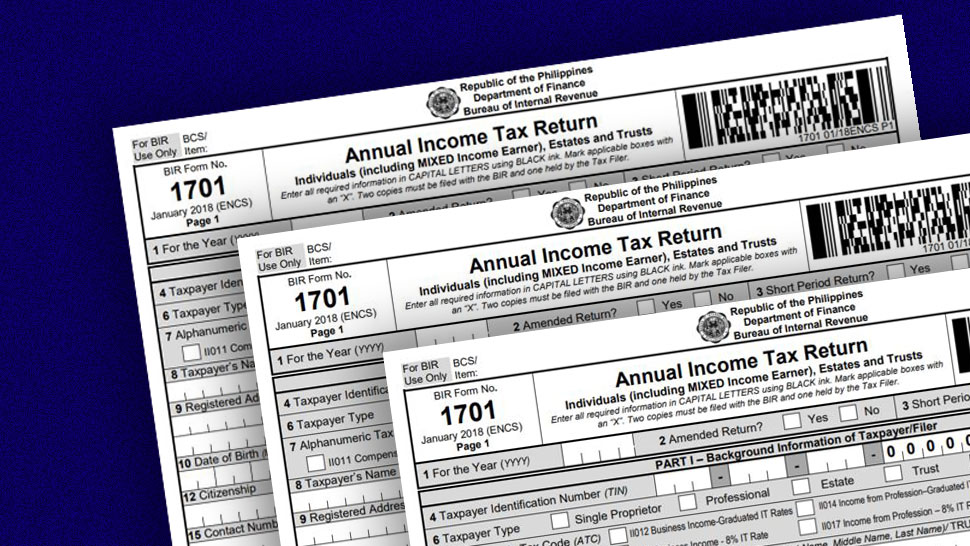To pass the immigration interview in the Philippines, prepare thoroughly, present genuine intentions, and offer complete, accurate documentation.

Understanding the Basics
When applying for a visa in the Philippines, it’s vital to grasp the essential concepts of the immigration process. This includes understanding the various types of visas available and the primary role of the Bureau of Immigration.
Types of Visas and Their Requirements
The Philippines offers a variety of visa types, catering to different purposes and durations of stay:
- Tourist Visa: This is for short-term visitors who wish to explore the Philippines for leisure. Requirements typically include a valid passport, confirmed flight details, and proof of financial capability. Learn more from Wikipedia.
- Business Visa: Individuals traveling for work or business-related activities might need this visa. Key requirements often encompass a letter from the affiliated company, intended business agenda, and sometimes, a tax clearance.
- Student Visa: For those wishing to study in the Philippines. Essential requirements include an acceptance letter from an educational institution, proof of finances, and health clearance. Read more on Wikipedia.
- Retirement Visa: For retirees seeking a long-term stay. The Philippines is a popular retirement destination thanks to its tropical climate and affordable living. One would need proof of retirement, a clear criminal record, and a specified amount of pension or savings.
- Spousal and Family Visa: For foreigners married to a Filipino or those with immediate family in the country. Proof of relationship, such as marriage or birth certificates, are crucial.
The Role of the Bureau of Immigration
The Bureau of Immigration is the frontline agency responsible for regulating and monitoring the entry and exit of foreigners in the Philippines. Their duties encompass:
- Visa Processing: They handle the assessment, approval, or denial of visa applications based on the provided documents and interview outcomes.
- Enforcement: Ensuring foreign nationals abide by the Philippine laws and taking necessary actions against those who violate their visa terms.
- Data Collection: They maintain records of all entrants, ensuring smooth tracking and verification of foreign nationals in the country.
Preparation for the Interview
Navigating the visa interview can be nerve-wracking. The best way to counteract this anxiety is through proper preparation. By getting familiar with what’s expected and practicing beforehand, you put yourself in a more favorable position for a positive outcome.
Gathering Necessary Documents
A substantial part of the preparation involves compiling all the required documents:
- Proof of Identity: This typically means your passport, but can also include national IDs, driver’s licenses, or birth certificates. Ensure that the passport is valid for at least six months beyond your planned departure from the Philippines.
- Financial Documents: Demonstrating your financial capability is crucial. This can involve bank statements, payslips, and tax records. These documents serve to prove that you can support yourself during your stay without becoming a burden on the state.
- Travel History and Itinerary: The immigration officer might be interested in your past travels. Having your previous passports, visa stamps, or travel documents can be helpful. Also, an itinerary detailing your plans in the Philippines, including hotel bookings and flight details, can further showcase your genuine intent to visit.
Dressing Appropriately for the Interview
First impressions matter. Dressing in a neat and professional manner can positively influence the interviewer’s perception of you. Avoid overly casual clothing like flip-flops or tank tops. Instead, opt for semi-formal attire such as a collared shirt and trousers or a modest dress.
Practicing Commonly Asked Questions
Familiarity with the type of questions you might be asked can significantly boost your confidence. Some common questions include:
- Why do you want to visit the Philippines?
- How long do you plan to stay?
- Do you have any relatives or connections in the country?
- What’s the purpose of your visit?
The Interview Process
The interview process is a pivotal stage in visa application for the Philippines. It provides the Bureau of Immigration an opportunity to assess the authenticity and validity of your intentions for visiting the country. Proper understanding and preparation can make this experience less daunting and increase the chances of a successful outcome.
What to Expect on the Day of the Interview
From the moment you arrive at the immigration office, it’s important to be aware of the following:
- Timeliness: Arrive at least 30 minutes early. This will give you enough time to relax, review any documents, and get acclimated to the environment.
- Security Protocols: Much like any government facility, there’ll be security checks. Make sure you’re carrying only essential items to expedite the process.
- Waiting Period: There might be a waiting time before your actual interview. Use this time to relax, go over your documents, and mentally review your answers.
- Interview Duration: Interviews can last anywhere from 10 minutes to an hour, depending on the specifics of your application and the questions asked. Remain patient and attentive throughout.

Common Interview Questions and Ideal Responses
Being prepared for potential questions will help you answer confidently:
- Question: Why do you want to visit the Philippines? Ideal Response: To explore its rich culture, beautiful beaches, and engage in [specific activity, e.g., scuba diving].
- Question: How long do you intend to stay? Ideal Response: I have planned for a [specific duration, e.g., two-week] vacation, as outlined in my itinerary.
- Question: Do you have any contacts in the Philippines? Ideal Response: Yes, I have a friend/family member residing in [specific city]. OR No, this is purely a leisure trip.
Mistakes to Avoid
There are certain pitfalls you’d want to steer clear of during the interview:
- Being Vague: Always be precise in your answers. For instance, if asked about your stay, provide specific dates or a clear itinerary.
- Showing Nervousness: It’s natural to feel anxious, but excessive nervousness can send the wrong signals. Practicing deep breathing or visualization techniques beforehand can help calm nerves.
- Contradicting Information: Ensure that your verbal responses match the information in your documents. Any inconsistency can raise red flags.
- Over-Elaboration: While it’s crucial to be clear, avoid offering unsolicited information. Answer what’s asked.
Post-interview Procedures
Once the interview concludes, the waiting phase begins. The post-interview period can be a mix of anticipation and uncertainty. However, understanding the subsequent steps can help ease some of this anxiety. This stage primarily involves awaiting feedback, understanding the decision rendered, and if required, fulfilling additional requests.
Receiving Feedback and Decision
Typically, after the interview, there’s a timeframe within which the Bureau of Immigration will communicate their decision. This could range from a few days to several weeks:
- Communication Method: The decision is usually communicated via email, phone, or regular mail. Ensure you regularly check all these mediums.
- Decision Letter: Once a decision is reached, a formal letter detailing the outcome and any further steps (if required) is provided. This letter should be kept safely as it might be necessary for future reference.
For insights into standard procedures post-interview in various contexts, this Wikipedia article can be an invaluable resource.
Possible Outcomes: Approval, Denial, or Need for Further Documentation
There are three potential outcomes you should be prepared for:
- Approval: Your visa application has been approved. Detailed instructions on the next steps, like visa stamping or payment of fees, will be provided.
- Denial: The visa application has been rejected. The decision letter usually contains reasons for the denial, which can guide future applications or appeal processes.
- Need for Further Documentation: Occasionally, the immigration officer might need additional documentation to make a decision. It’s crucial to provide these promptly to avoid unnecessary delays.
Addressing any Additional Requirements
In some cases, after the interview, the Bureau might ask for further documentation or clarifications:
- Quick Response: Address any requests as soon as possible. Delays can complicate the process.
- Clarity: If unsure about what’s being requested, don’t hesitate to seek clarity either through direct communication or legal counsel.
- Documentation: Always provide clear, legible, and authentic documents. Avoid submitting unrequested information.
- Follow-up: After submitting additional requirements, it’s a good idea to confirm receipt and inquire about any further steps.
Tips and Tricks
While the visa application and interview process in the Philippines has clear protocols, knowing a few insider tips can potentially tilt the scales in your favor. The objective is to project genuineness, preparedness, and integrity, making you a favorable candidate for the visa.
Building a Genuine Relationship with the Interviewer
The human aspect of the interview cannot be overstated:
- Active Listening: Pay close attention to what the interviewer asks and respond thoughtfully. Avoid interrupting them.
- Eye Contact: Maintain occasional eye contact. It’s a sign of confidence and sincerity.
- Courtesy: Greetings, polite language, and a thank you at the end of the interview can create a positive impression.
- Body Language: Maintain good posture and avoid fidgety movements. These non-verbal cues can communicate confidence and genuineness. For more on the influence of body language, consider reading up on this Wikipedia page.
Demonstrating Clear Intentions for Travel or Stay
Your purpose for visiting or staying in the Philippines should be crystal clear:
- Itinerary: Having a day-by-day itinerary can demonstrate a well-thought-out plan.
- Local Contacts: If you have friends or family in the Philippines, mention them. This shows you have genuine reasons to visit.
- Purpose Explanation: Whether for tourism, business, or studies, explain your reason with clarity and passion.
Showing Financial Stability
The Bureau of Immigration wants to ensure visitors won’t be a financial burden:
- Bank Statements: These don’t just prove you have money, but a steady history shows financial responsibility.
- Employment Verification: If employed, a letter from your employer can underscore stability. This might indicate your intention to return after your visit, as you have commitments back home.
- Tax Records: This can be an added proof of your financial status and regularity in fulfilling civic duties.

Dealing with Rejections
Facing a visa rejection can be disappointing, especially after investing time, effort, and emotion into the application. However, a rejection isn’t the end of the road. With the right approach, understanding, and guidance, you can either appeal the decision or increase your chances during a reapplication.
Understanding the Reason(s) for Denial
The foundation for any future action lies in understanding why the rejection occurred:
- Detailed Review: The rejection letter typically provides reasons for denial. Analyze each point carefully to determine the areas of improvement.
- Common Reasons: Some frequent reasons include incomplete documentation, suspicion of immigration intent, or insufficient financial support. Identifying which one(s) apply to you can guide your next steps.
For a general perspective on reasons for visa denials globally, this Wikipedia article offers insights.
Ways to Appeal or Reapply
If you believe there was a genuine oversight or misunderstanding, you have options:
- Appeal Process: Some visa categories might allow for an appeal. If considering this route, ensure you follow the specified protocol, timeline, and provide any additional documentation requested.
- Reapplication: If an appeal isn’t an option or isn’t successful, you can consider reapplying. Address the shortcomings mentioned in your rejection and ensure your new application is more robust.
Seeking Legal Counsel or Expert Advice
Sometimes, the guidance of an expert can be invaluable:
- Immigration Lawyers: They possess in-depth knowledge of the immigration system and can provide insights on the nuances of the application process.
- Consultation Agencies: There are many agencies that specialize in visa applications and can help bolster your application’s strength.
- Community Forums: Online forums and communities can be a goldmine for firsthand experiences, advice, and recommendations. However, always cross-check any advice with official sources or professionals.